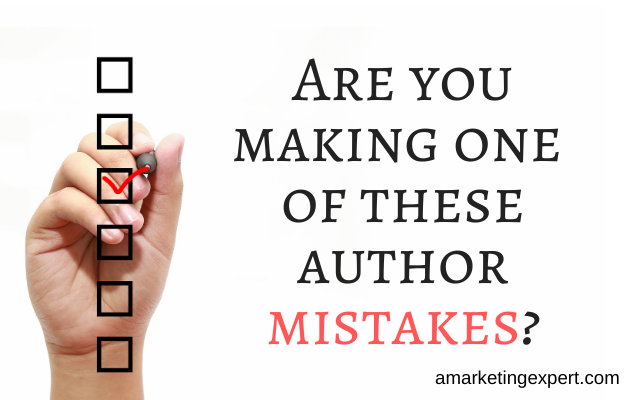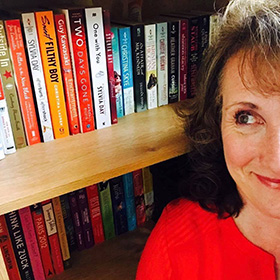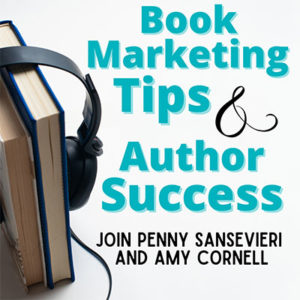When it comes to how to sell books, there are a lot of things authors do right. But there are also a lot that authors do wrong. Some of this isn’t always obvious (like point #1 below on author branding), but some of it is (like getting your book edited, please).
And sometimes authors make several of these mistakes, which is unfortunate. But thankfully most are fixable.
1. Not Understanding Author Branding (and why it can save you a lot of time and money)
We hear the term author platform a lot and if it seems to go hand-in-hand with author branding, there’s a reason. Your author brand will directly impact your platform. But more than that, a good author brand actually makes it easier to market your book. Did I just say easier? You bet, read on.
When authors embark on book publishing, they often find themselves immersed in details like book release dates, book pricing, book cover, etc. But very few authors spend time first on their brand. And by this, I don’t mean spending hours with a designer discussing color themes for your website – although color is important. What I mean is when you are trying to learn how to sell books, knowing who you are and what your author message is to your readers.
Do you write Rockstar romance because, even though you’re the CFO at a large firm, you still love to rock out whenever you get a chance and you’ve had a secret crush on Jon Bon Jovi for years?
Or maybe you write books on parenting. What’s your message to moms and dads? Do you always show up on social media looking all put together, or are you more “real” with your readers, sharing images of the sometimes chaos that ensues trying to get kids off to school?
Your message to your reader is important. It not only helps you to carve a better path on social media, but it also helps you to know what the look and feel of your website is, and this helps readers to better “understand” what you’re about. Which, in turn, makes your marketing easier.
So often though authors spend little, if any time on this. It feels daunting, but it really isn’t. I’m not suggesting you launch a big author branding effort, but just mapping out who you are, what you stand for – and what’s in your website color plate (and by the same token, your book covers) will really help not only pull in more readers, but keep them there.
Don’t believe me? Start to do a search on Amazon of authors in your genre – pick 10 or 12 and take a look at what their book covers look like vs. their online presence. Do they look the same, can you spot an author just based on their color scheme or the “tone” of the book description, or maybe the font is the same across all books. By contrast, if you happen on an author website that looks disheveled, mismatched fonts, and no clear message. How inspired are you to buy from them?
See what I mean?
2. How to Sell Books 101: Price your Book Right
Ideally, we all want to earn back what we invested in our books. But you won’t do it by overpricing the book or eBook.
It seems counterintuitive, right? Price it higher because it’s new, you’re a new author – that makes sense, doesn’t it?
But remember this. You are asking for a reader’s time and commitment. And then, on top of that, you’re asking for more money.
Does that feel like a good business model of how to sell books to you? Probably not.
3. Not Launching Different Editions of a Book
I’ve spoken with authors who say “I just want to launch my hardback first.” And I think that’s fine, if your reader is more inclined to buy a print copy of your book. Do you know? Are you sure?
Most readers will buy a book in a format they want – and it’s often hard, if not impossible, to convince them otherwise.
So I think before you do this, be absolutely clear about what your readers most gravitate to. Now, this doesn’t mean that you have to launch the audiobook, eBook, paperback, and hardcover at the same time. But ideally, when you launch your book have, at the very least, a paperback and eBook edition. You can always launch the audiobook later if you plan on doing an audio version and follow that up with the hardback. It’s not necessary to do either a hardback or audio version because again, this depends on what your reader wants.
I’ve known some authors to spend a lot of money on an audiobook for an audience that’s primarily eBook driven. So make sure you dig into reader preferences before you produce book editions that your readers don’t want. Or try to force them to buy one particular edition of your book – because I can guarantee you unless you’re a household name they will probably move on.
Not sure how to begin this research? Amazon is a good place to start. Take a look at books similar to yours and see what the top authors are doing. That’ll give you a good place to start.
4. Not Being a Fan of Your Genre
In order to have fans, you must first be a fan. Get to know your genre and by the same token, get to know your reader because your reader absolutely matters. By spending time immersed in your genre, you’ll get to know your market and you’ll start to learn what drives your reader to engage. Because engagement always comes before a buy.
Getting to know your reader means, in the purest sense, reading. Read other books in your genre, lots of them. Read the reviews on Amazon, check out their websites. Be a fan. Follow similar authors, share their stuff, engage with them. Immerse yourself in the market.
Sometimes the ideas come before being a fan, I get it. You see something or read something, and it triggers the idea for a great story. But as you put pen to paper remember that you don’t want to muddy the genre. By “muddy” I mean that readers have particular “wants” when they pick up a book. Get to know what those are. If you’ve written in genre fiction, what are the essentials of the various tropes? Don’t know? Then it’s time to start reading and studying your marketplace.

5. Not Knowing Your Genre
This goes hand in hand with being a fan. Because if you are truly a fan of your genre, you probably know the exact elements you need to include. Sadly, many authors just guess at their genre or finish writing a book and then decide what genre they should put it in. That’s a huge mistake.
Sometimes I talk to authors who ask me what genre it should be in. Without reading it, maybe a few times, I would have no way of knowing that.
If you’ve published a book that seems to straddle a few genres, I bet your sales are lagging. Mostly because you’re trying to be everywhere.
Most books are not written for everyone. Even big broad topics like dieting, dating, relationships, or money have a particular sub-focus. So as you get to know your reader, get really familiar with your genre, too. Not only will it help you craft a better book, but it’ll also help you sell more books, too.
6. Designing Your Own Book Cover
I can’t emphasize how problematic this is. Even if you’re a cover designer you’re probably too close to your own book.
Most hairstylists don’t actually cut their own hair.
A book cover is a window to your book – and if your cover is bad, most readers won’t spend the time trying to read the book description on Amazon, they’ll just move on.
7. Not Getting Your Book Edited
Would you send a resume to a potential employer that was full of typos?
Most people kind of chuckle at this question and say no. I mean it’s pretty absurd, right?
Yet it’s so mind-blowing how many authors release books that haven’t been edited.
Word is not your editor. Some random online program can’t edit for you. Please hire a content editor and a copy editor. Yes, you should have both.
8. Not Having a Budget to Market Your Book
When it comes to book marketing, some authors love to go it alone, which is great and admirable, but even then, you still need to have some money to market your book.
Publishing a book, regardless of how you publish it, is a business. Would you ever open up a donut shop with no marketing budget to get fliers out to the neighborhood, etc.? Likely not.
Having some kind of money earmarked to spend on your marketing, whether you do your own book promotion or outsource it, is just smart business. But the flip side of this is: don’t expect to make it all back at book launch. Investments take time, so be patient.
The final piece I would say is not sticking with your marketing. Authors get discouraged and I get that. It’s a lot of work and there’s potentially a whole space of time where literally nothing seems to happen. But if you stick with it, and keep plugging away, I can almost assure you it will.
Good luck!
Resources and Free Downloads
Monthly Book Marketing Planner
Book Marketing Plan: Your Book Promotion Mindset





0 Comments
Trackbacks/Pingbacks